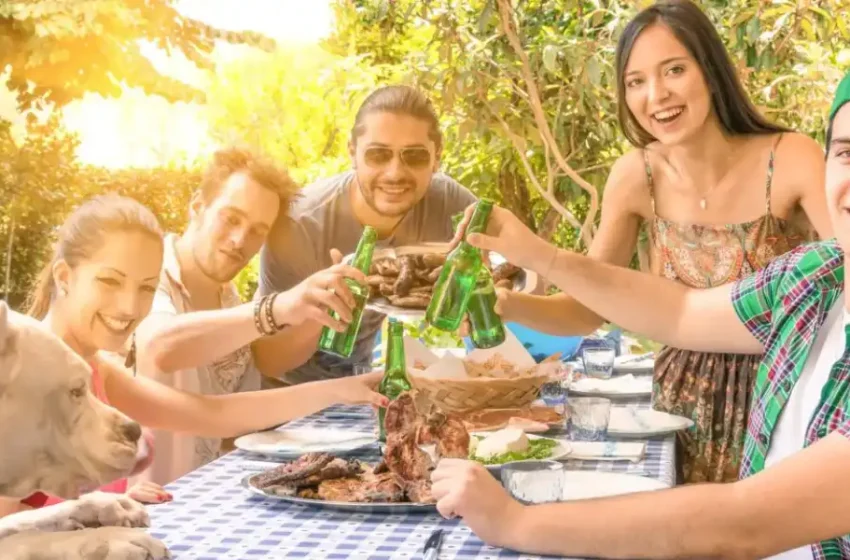
Eco-Friendly Outdoor Cooking: Savor Nature, Leave No Trace
Welcome to the world of eco-friendly outdoor cooking, where culinary adventures and environmental stewardship come together harmoniously. In this comprehensive guide, we’ll explore how to enjoy the great outdoors while minimizing your carbon footprint. Join us as we delve into sustainable outdoor cooking practices, equipment, and thoughtful gift ideas.
Nourishing Nature with Sustainable Cooking
Embracing Eco-Conscious Choices
When it comes to outdoor cooking, being eco-conscious is not only responsible but also deeply rewarding. By making mindful choices, you can savor nature’s bounty while preserving it for generations to come.
Minimizing Food Waste
Food waste is a significant issue, even in the wilderness. Learn how to plan meals efficiently, store ingredients properly, and creatively use leftovers to reduce waste during your outdoor culinary adventures.
Choosing Sustainable Ingredients
Opt for locally sourced, organic, and sustainable ingredients when planning your outdoor menu. Supporting local farmers and reducing the environmental impact of food production are key principles of eco-friendly cooking.
Eco-Friendly Outdoor Cooking Gear
Efficient Camp Stoves
Invest in energy-efficient camp stoves that use renewable fuels or alternative energy sources. These stoves produce fewer emissions and waste, making them an eco-friendly choice for outdoor cooking.
Sustainable Cookware
Choose cookware made from eco-friendly materials like stainless steel, cast iron, or bamboo. These options are durable, toxin-free, and can be recycled or repurposed.
Biodegradable Dinnerware
Swap disposable plastic plates and utensils for biodegradable alternatives made from materials like cornstarch or palm leaves. Leave no trace by ensuring your dinnerware breaks down naturally.
Solar-Powered Accessories
Harness the power of the sun with solar-powered chargers and cooking accessories. These innovative gadgets not only reduce your carbon footprint but also keep your devices charged while you cook.
Eco-Friendly Outdoor Cooking Tips
Low-Impact Campfire Cooking
If you love cooking over an open flame, use fire rings or designated fire pans to minimize the impact on the environment. Always follow Leave No Trace principles when building and extinguishing your campfire.
Reduce, Reuse, Recycle
Pack reusable containers for ingredients and leftovers. Recycling centers may not be available in remote areas, so carry out what you bring in to maintain the pristine beauty of the outdoors.
Eco-Friendly Fire Starters
Instead of chemical-laden fire starters, opt for natural alternatives like cotton balls soaked in beeswax or dry pine needles. These options are safe for the environment and your health.
Outdoor Cooking Gifts with a Green Twist
Solar-Powered Cooking Gadgets
Surprise the outdoor cooking enthusiast in your life with solar-powered cooking gadgets like solar ovens or solar-powered lanterns. They’re not only practical but also environmentally friendly.
Sustainable Picnic Sets
Gift a picnic set made from sustainable materials like bamboo or recycled plastic. These sets often include reusable utensils, plates, and cups, encouraging eco-friendly outdoor dining.
Eco-Friendly Cookbooks
Explore cookbooks that focus on sustainable and seasonal cooking. They provide recipes and tips for creating delicious outdoor meals while reducing your environmental impact.
Final Words
Eco-friendly outdoor cooking is more than just preparing delicious meals; it’s a commitment to preserving the natural world we cherish. By making sustainable choices in your cooking practices and equipment, you can savor the beauty of the outdoors while leaving no trace behind. Let’s embark on a culinary journey that nourishes both the soul and the planet.
Commonly Asked Questions
1. How can I reduce food waste while camping?
Plan your meals carefully, use leftovers creatively, and store food in airtight containers or reusable bags to minimize food waste.
2. What is the most eco-friendly fuel for camp stoves?
Consider using renewable fuels like denatured alcohol or compressed natural gas, which produce fewer emissions than traditional fuels.
3. Can I use eco-friendly cookware on a campfire?
Yes, many eco-friendly cookware options, such as cast iron, are suitable for cooking over a campfire. Just be sure to season them properly.
4. How can I find sustainable ingredients for outdoor cooking?
Visit local farmers’ markets or look for products with eco-certifications. Supporting sustainable agriculture is key to finding eco-friendly ingredients.
5. What is the Leave No Trace principle in campfire cooking?
The Leave No Trace principle emphasizes minimizing your impact on the environment by practicing responsible fire management and cleaning up after yourself.


